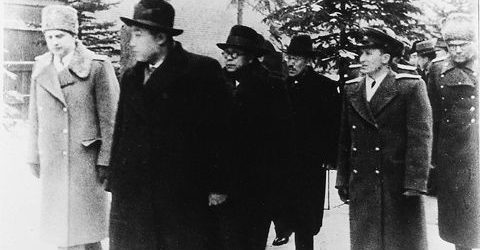Only 1 or 2 of 10 Factories Run at Night … At 8 p.m. Darkness Befalls the Factory Complex
2018.10.17
The lights go out at industrial complexes.
I went to industrial complexes Southeast, Banwol, Shihwa, where the manufacturing companies are concentrated…
Most are contractors of large business… Direct hit on main businesses causing downturn
“After the introduction of the 52-hour work system, overtime was reduced and our wages were reduced. The restaurant near the factory was empty, “I cannot even think of opening on the weekend”

“Mon, Tue, Wed, Thu, Fri, Fri, Fri, nights like days” the same night as the day.” One business man answered this way when asked about the competitiveness of Korean manufacturing. There were no weekends, no day and night difference. The machine ran. After meeting seemingly impossible deadlines, orders flooded in from abroad. South Korea became a manufacturing powerhouse, and those who worked at factories became middle-class. The base was an industrial complex.
The lights in Korea’s manufacturing heart is turning off. It is hard to find factories that run on weekends and nights. It is not only the result of changes in industrial structure, changes in living culture, and automation. Request to work is coming up frequently on the Blue House petition bill and small business are closing the door. There is growing anxiety that the darkness of the unlit industrial complex may be touching the dark future of Korean manufacturing and the Korean economy. (truncated in the middle)
52-hour labor law darkens industrial complexes
In addition to the economic downturn and the difficulties of the shipbuilding industry, the 52-hour workweek and the minimum wage hike also put an end to the lights at the industrial complex. It is not only businessmen who feel anxiety. Workers also feel a sense of crisis. A 40-year-old employee working at a food processing company said, “If I worked even 1-2 hours overtime and took the bus at 8 p.m., I couldn’t find seats because there were so many people, but nowadays, buses are completely empty around that time.” He said that because of the 52-hour workweek, more companies were not giving overtime. “If manufacturing workers lose over time, then their wages also shrinks,” he added. “We are feeling a lot of burden on household expenses from the second half of the year.”
A business man said, “After the 52-hour workweek law was instituted, an employee in his 40s who received a pay slip came to me crying, asking to work more hours.” Some companies have recruited additional personnel for the 52-hour period, but most businesses are forced to turn off the lights early due to work shortages and to avoid the increased labor cost due to the 52-hour work week law, he added.
https://m.news.naver.com/read.nhn?mode=LSD&sid1=001&oid=015&aid=0004028059






